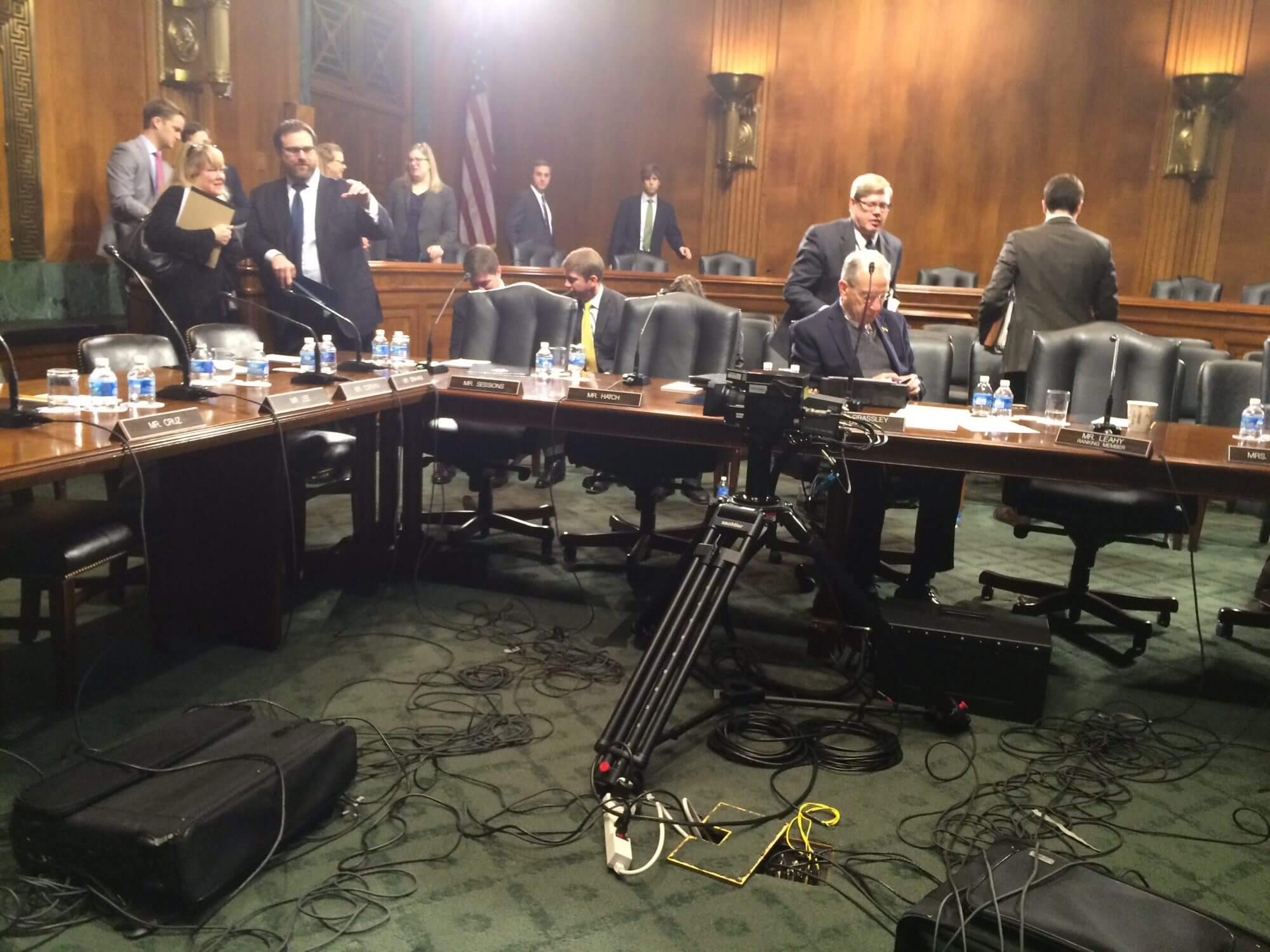WASHINGTON — Companies’ trade secrets, which are vital to their growth, would be better protected from industrial spies under a bill creating federal standards to prosecute violators while still maintaining the integrity of the information.
The Defend Trade Secrets Act, introduced last year by Sen. Orrin Hatch, R-Utah, is widely supported by members of the Senate Judiciary Committee, which met Thursday to consider amendments. The amendments, approved during the hearing, would make the bill more acceptable to a number of senators, strengthening the bipartisan effort to get the bill through Senate.
During the meeting, senators agreed that the protection of trade secrets is vital for the growth of American companies. A 2010 U.S. Chamber of Commerce study said that an estimated $300 billion dollars’ worth of U.S. trade secret assets are stolen every year, often through cyber theft.
“The threats trade secret owners face are coming from thieves who are able to quickly travel across state lines and who use technology to aid their misappropriation,” said Judiciary Chairman Chuck Grassley. R-Iowa. “In many cases, the existing patchwork of state laws governing trade secret theft presents difficult procedural hurdles for victims who must seek immediate relief.”
Hatch said the Justice Department has few resources to investigate and prosecute offenses against trade secrets. Differing state laws regarding trade secret theft provide little justice to victims, he said.
“The bill before us gives trade secret owners access to both a uniform national law and the federal courts would provide nationwide service, process and execution of justice,” he said.
One of the amendments, suggested by California Democrat Dianne Feinstein, ensures the ability of employees to pick their place of work without being hindered by the legislation, shielding proprietary information.
“Under the bill, restrictions may be placed on an employee’s new job but they must be based on real threatened misappropriation, not simply based on what the employee knows,” she said. “As I understand it, this now reflects case law in California and the bill preserves that case law.”
Hatch emphasized that the bill does not preempt state laws, nor does the amendment, Feinstein said. If a state’s trade secret law goes further into protecting their local companies’ intellectual properties, the protections of the federal standard will still be available, she said.
The bill would create an ex-parte seizure ability in court, which means it would allow the owner of the trade secret to try to get a ruling from a judge ex-parte — without requiring all of the parties to be present — and pull the secret back before the suspected thief has a chance to share it with a competitor or with the world.
“Trade secrets are different from other forms of intellectual property because they’re protected by the law only if they remain secret,” Hatch said. “Once the public learns about the trade secret, the trade secret loses its legal protection.”
Senator John Cornyn, R-Texas, said the legislation could affect the world of patents, arguing that these rights encourage innovation but could also be abused and affect the economy. The best way to address this, he said, is by redoubling efforts to pass legislation improving patent law.
He also warned the committee of potential costs that may come with the Hatch legislation. He said it would create a new federal right over what is usually a state concern. It also would increases competition among smaller businesses seeking to hire new employees.
The amendment were approved by a voice vote. Grassley did not set a date for a final vote on the entire bill.


